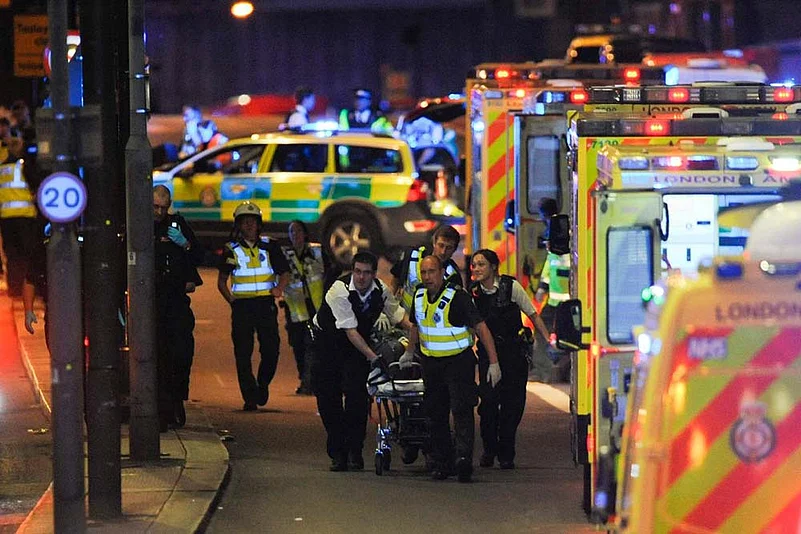Who was the 20th century catalyst for the global jehad, which is now on a rampage? Sayyid Qutb, Osama bin Laden, Ayman al-zawahiri or Abu Bakr al-Baghdadi? No, it was Zbigniew Brzezinski, President Jimmy Carter’s National Security Adviser, who died on May 26, 2017.
In January 1998, Brzezinski boasted to the French magazine Le Nouvel Observateur that he was responsible for Carter’s July 3, 1979 order asking CIA to provide secret aid to topple the Communist regime in Kabul by using Afghan extremists (Mujahideen). As a result, CIA and allies raised and directed (1979-89) the largest army of Islamic radicals (50,000) in recent history for anti-Soviet jehad and equipped them with 65,000 tonnes of arms. Global jehadi high priest Osama bin Laden was prominent among them.
The US and allies made big mistakes. The 9/11 Commission called it a failure of ‘insight’ and ’imagination’. First, they underestimated the destructive jehadi potential. Brzezinski downplayed it even in 1998 by asserting that the collapse of Soviet Union was more important than “some stirred-up Moslems”. This was countered in 1998 itself by well known New Yorker columnist Eqbal Ahmad, who asserted that “jehad as an international violent phenomenon” had disappeared in the last 400 years but “was revived suddenly with American help”.
The second big mistake was the muddled planning of Bin Laden’s expulsion from Saudi Arabia to Sudan (1991) and his further move to Afghanistan (1996), which provided him an ideal haven for global conspiracy. His activities could have been restricted had this not happened. The US had roles in both, although denied. Steve Coll (author of Ghost Wars) said that Bin Laden was expelled to Sudan on CIA’s report. The Saudi official who escorted him out conveyed that the royal family was preventing his killing by the Americans. The Guardian said that Sudanese negotiators told CIA that he would go to Afghanistan. ‘Let him’, said the CIA. As a result, bin Laden “eventually enjoyed a strong financial position in Afghanistan, thanks to Saudi and other financiers”, according to the 9/11 Commission, which also felt that “ISI probably had advance knowledge of his move to Afghanistan and its officers may have facilitated his travel”.
The third mistake was not getting him arrested in Afghanistan, despite plans by the CIA. By 1997, the CIA was ready with plans of his capture. His indictment for attempting attacks against the US was approved by the grand jury in June 1998. The CIA conducted four rehearsals. However the plans went awry because of bureaucratic bottlenecks in Washington DC. According to the 9/11 Commission: “At this time, 9/11 was more than three years away”.
The fourth big mistake was President Bush’s 2003 war to bring in ‘regime change’ in Iraq. This was opposed even by Gen. Brent Scowcroft, his father’s national security adviser, who had coordinated the First Gulf War (1900-91). In 2002, he warned Bush that “Saddam’s exit would swell terror’s ranks”. A declassified British Joint Intelligence Committee paper (Feb 10, 2003) supported this: “The broader threat from Islamist terrorists will also increase in the event of war, reflecting intensified anti-US/anti-Western sentiment in the Muslim world, including among Muslim communities in the West.”
Former MI-5 chief, Manningham-Buller, told the Chilcot inquiry on July 20, 2010: “Our involvement in Iraq...radicalised a whole generation of young people, some of them British citizens who saw our involvement in Iraq, on top of our involvement in Afghanistan, as being an attack on Islam”. She then underplayed the threat by aiming to correct “not a whole generation, a few among a generation”. Now, MI-5 says that it is struggling to watch 20,000 British jehadis. There was no Al-Qaeda in Iraq before the 2003 US invasion. Similarly, the arming and funding of terrorists by the West against Bashar-al-Assad’s regime in Syria from March 2011 created ungoverned territories which are occupied by terrorists. This was the origin of the dreaded Islamic State, which, like Jules Verne’s giant octopus, is attacking humanity all over the world.
These lessons of history have relevance to our Kashmir situation also. Our hyper nationalists think that force will suppress dissent in the Valley. Global experience has disproved this wrong judgement.
(The writer is a former special secretary, cabinet secretariat. His new book, Keeping India Safe: The Dilemma of Internal Security, will be out in July 2017)


























